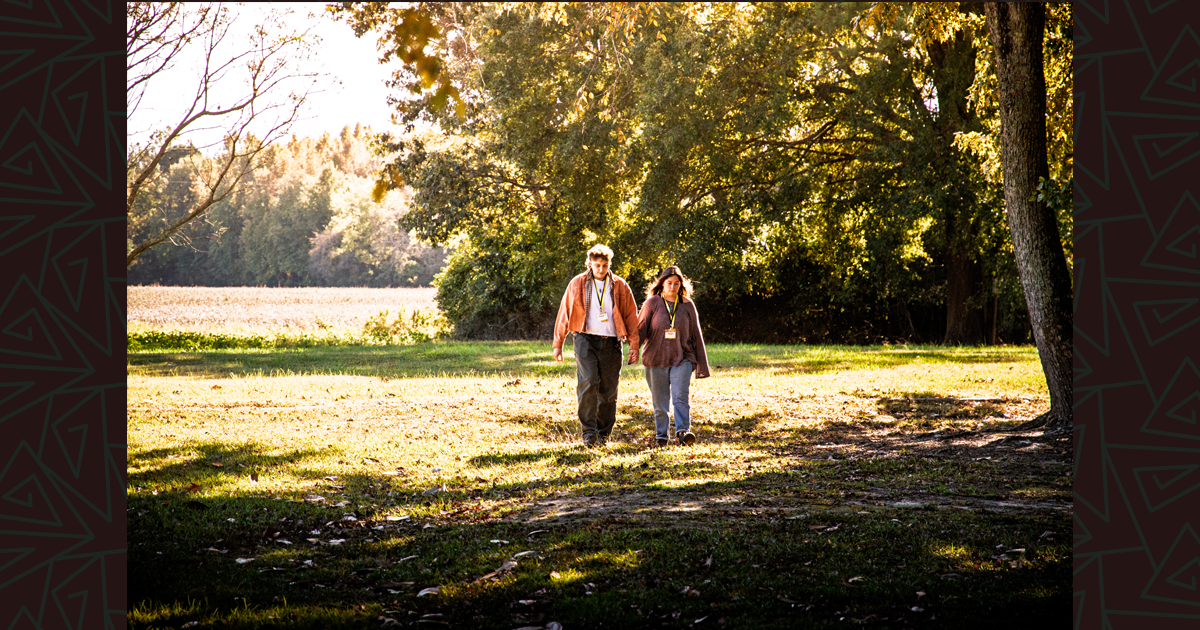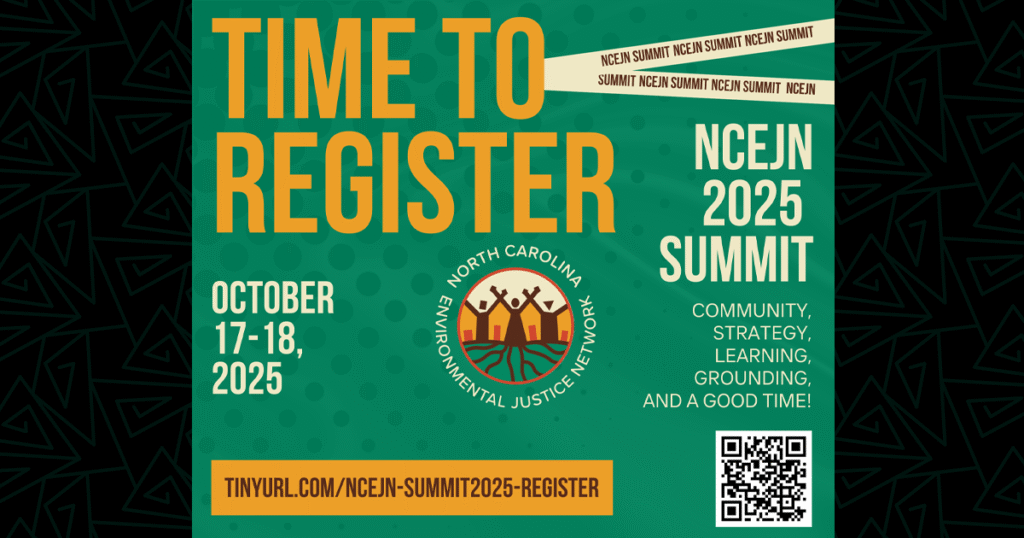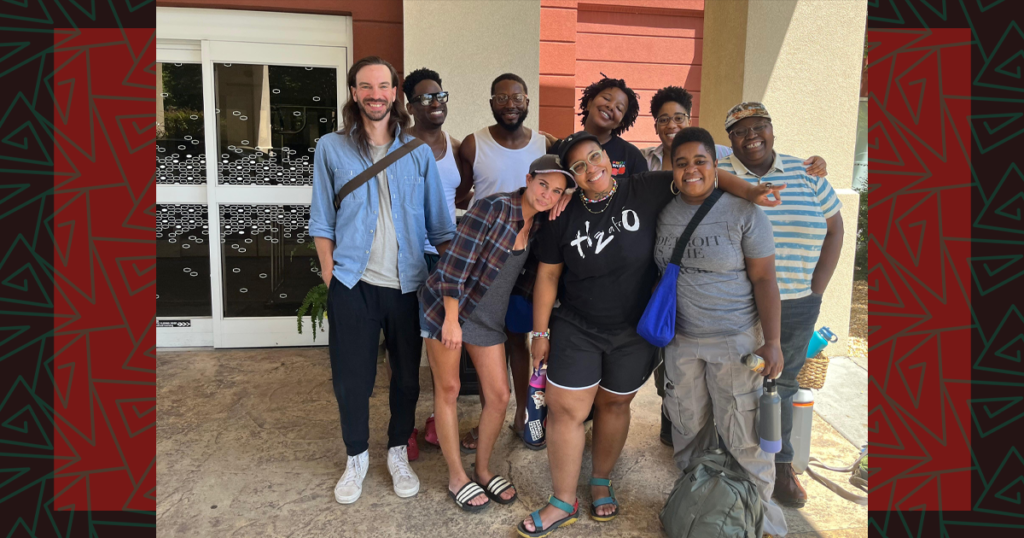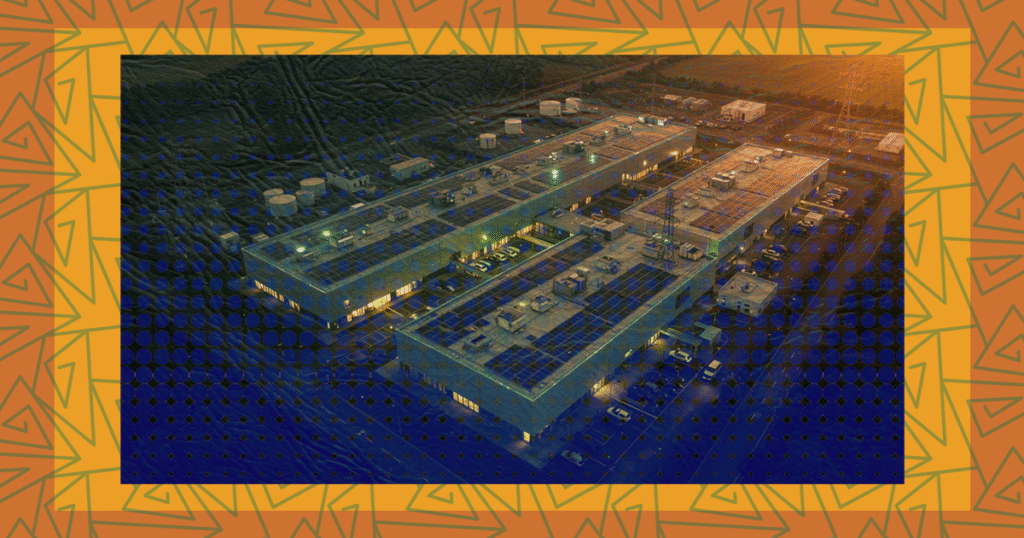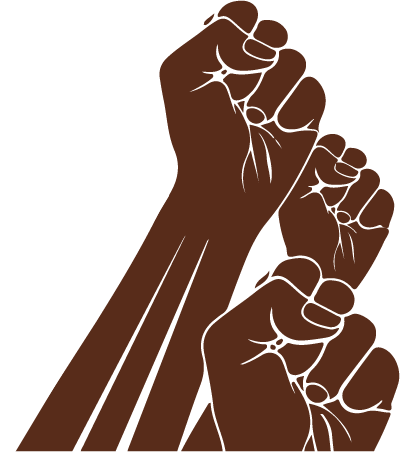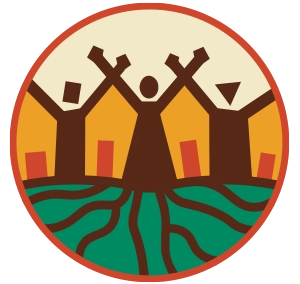Carson Mease, Sustainable Development undergraduate student at Appalachian State University
On the 18th of October, 2024, students of Appalachian State University’s Applications in Environmental Justice class traveled to Whitakers, North Carolina from the freshly hurricane-ravaged mountains of Western North Carolina. I was lucky to be one of them. Around 1:00 that Friday afternoon, we arrived at the the Franklinton Center at Bricks, the historic site of the 2024 NCEJN Environmental Justice Summit.
Three weeks post-Hurricane Helene, some classmates experienced hardship that hindered their ability to attend the Summit. Those who were able to attend were welcomed with open arms, ears, and hearts by a community of people familiar with our experience. From the time that we pulled into the parking lot, bright, sympathetic smiles and warm hugs greeted us. I knew that I had found a refuge for my grief.
Over the course of the weekend, we came to better understand the Environmental Justice (EJ) Movement through participating in research presentations, government listening sessions, panels on evolving EJ topics, storytelling, focus groups, a fireside chat, music, and celebration. Gathering alongside community and movement members to get to know them and their stories became a critical cornerstone for my personal development.
The opportunity to connect with historically oppressed, yet fiery and driven community members assured me that I had a place in the struggle for a just and sustainable future. At the Summit, I engaged with some of the most compassionate, honest, and nurturing people I’ve met. Interacting with these communities at the site of a former slave plantation enhanced my takeaways from the summit, the location itself demanding attention to, recognition of, and reflection on the systems of oppression that have historically undermined the livelihoods of marginalized communities, pieces of which persist today. With the nearly 50 years of collective action towards achieving environmental justice, we continue to challenge the historical and organized patterns of mistreatment that plagues marginalized communities, making world-changing strides towards justice.

Prior to the Summit, I hardly had any tangible experience with the Environmental Justice movement, but felt connected to it through the fiery passion and admiration that had grown in my heart while learning about it in the classroom. For myself and many of my classmates, the privilege of participating in the Summit felt like both a homecoming and introduction to grassroots activism by taking a tangible part in the movement that keeps our hearts beating. Being surrounded by so many people who are passionate about EJ, especially during a time when we were so vulnerable, instilled senses of peace, motivation, and belonging to the movement within our hearts and minds.
Still quite disheveled and bearing the wounds of the storm trauma that persisted back home, our tears, enthusiasms, anxieties, shortcomings, and strengths were invited and embraced by Summit organizers, and attendees alike. As students of Appalachian State, we volunteered to support Summit logistics, but it actually feels that we weren’t the ones giving–rather we were receiving. Receiving solidarity through love, solace, and camaraderie.
Arriving eager to listen, sympathize, and learn by sharing space with EJ communities, leaders, scholars, and activists, it turns out that they offered us room to speak, cry, and grieve. As members of freshly hurricane-impacted communities, our concerns and lived experiences involving Hurricane Helene were met with sentimental, meaningful responses, even tears, leading me to feel communally cared for in a way so deeply touching and tenderly communicated that I had yet to experience.
Being invited to express our thoughts and feelings on the hurricane led to me broadening my conception of environmental justice. At the Summit, I came to know the movement as one that strengthens and expands relationships through prioritizing inclusive spaces, embracing intersectionality to fuel our strong strides toward an equitable future for all.
Not only did I personally feel that the Summit was an opportunity to gather, exchange experiences, pursue knowledge, seek refuge, and feel refreshed, it also seemed that way for everyone in attendance. I would return home to take on post-disaster recovery, while most others would return to continue taking on the difficult but paramount work that confronts us, both equipped with knowledge and ethics of care to bring back and share with our neighbors. To the historically vibrant and growing North Carolina EJ community, thank you for welcoming us with a crowd of open arms, ears, and hearts, and for sending us home in a better-fit state. I feel that I was welcomed home at the Summit, sure that I had found ways to connect with a larger community through shared struggles and commitments to justice.
Hello, I am Carson, a non-binary senior Sustainable Development undergraduate student at Appalachian State University. I grew up in the beautiful Blue Ridge Mountains in Asheville, North Carolina, a special place that has, without a doubt, heavily informed the way I view and interact with the world. I chose to major in Sustainable Development at App State to better understand how structures of power work to dominate land and biological beings, including wildlife and humanity alike. With the knowledge of how these systems operate, I feel equipped to take on action in stride of revolutionary change that will ensure more just, equitable futures for all beings.
